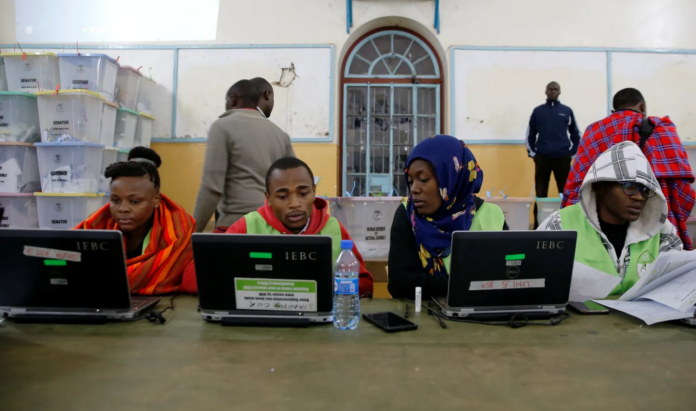A recent article by Akinbowale, et al., (2023) titled “Investigating the level of effectiveness of the anti-fraud technologies employed by the South African banking industry for cyberfraud mitigation” published in Journal of Financial Crime by Emerald Insight show that South African banks use diverse anti-fraud tech (e.g., filtering, firewalls) to combat cyberfraud.
“
South African banks employ diverse anti-fraud technologies, combining internal and external measures, enhancing cyberfraud mitigation effectiveness against evolving digital threats.– Akinbowale et al., 2023
This article delves into the pivotal role of anti-fraud technologies in the South African banking sector to combat cyberfraud. It examines the array of anti-fraud technologies implemented by banks, encompassing filtering software, firewalls, encryption, continuous auditing, data mining, and other relevant tools. The study scrutinizes the inherent nature of these anti-fraud technologies, discerning whether they are internally developed or sourced externally, and assesses their impact on the prevention and detection of cyberfraud. To gauge the effectiveness of these anti-fraud technologies, insights are drawn from the perspectives of key personnel within 17 licensed commercial banks in South Africa. Their responses serve as a valuable metric in evaluating the efficacy of the implemented measures. The article also addresses challenges associated with anti-fraud technologies and provides recommendations to enhance their utilization. Suggestions include increased investment in digital and emerging technologies, the development of human capacities within the banking sector, and improvements in regulatory and policy frameworks to fortify the overall anti-fraud landscape.
How the study was conducted
The authors employed a qualitative research design involving a purposive sampling method to collect data from key organizational staff across the 17 licensed commercial banks in South Africa. The authors employed data by means of structured questionnaires with ordinally scaled questions related to the anti-fraud technologies and their effectiveness in cyberfraud mitigation. The authors used non-parametric statistical tests such as chi-square, Fischer’s exact test, bivariate analysis and Spearman correlation to analyse the data and test the hypotheses.
What the authors found
The authors found that South African banking industry employs various anti-fraud technologies, such as filtering software, firewalls, encryption, continuous auditing, discovery sampling, virus protection, financial ratios, digital analysis and data mining, to combat cyberfraud. The authors posits that a combination of internal and external anti-fraud technologies has a positive effect on cyberfraud mitigation, as they help to ensure effective internal control systems, minimize internal and external fraud perpetrators, and meet the regulatory standards and customer expectations. In addition, the study also found that the effectiveness of anti-fraud technologies varies depending on the type, nature and deployment of the technologies.
Why is this important
Cyberfraud is a serious threat to the banking sector and the economy. Cyberfraud can cause financial losses, reputational damage, customer dissatisfaction, and legal liabilities for banks and their customers. According to the study, cyberfraud costs the global economy about $600 billion annually, and South Africa ranks among the top ten countries with the highest cybercrime rates in the world. Anti-fraud technologies are essential tools to prevent and detect cyberfraud. Anti-fraud technologies are software or hardware solutions that help banks monitor, analyse, and protect their information systems and transactions from cyberattacks. They can also help banks comply with regulatory requirements and industry standards for cybersecurity. The authors identify various types of anti-fraud technologies, such as filtering software, firewalls, encryption, continuous auditing, discovery sampling, virus protection, financial ratios, digital analysis, and data mining. Evaluating the effectiveness of anti-fraud technologies can help banks improve their cybersecurity strategies and performance. By measuring the impact and success rate of the anti-fraud technologies they use, banks can identify their strengths and weaknesses, and make informed decisions on how to allocate their resources, update their policies, and enhance their capabilities.
What the authors recommend
- The authors suggest that the South African banking industry should invest in more advanced and innovative anti-fraud technologies to enhance their cyberfraud mitigation capabilities and reduce the risk of cyberattacks.
- The authors stress the need for periodic training and awareness programs for the staff and customers of the banks to enable them to effectively deploy and use the anti-fraud technologies and to prevent human errors or negligence that may facilitate cyberfraud.
- The authors propose that the banks should align their ICT strategies with the existing legal and regulatory frameworks in South Africa and collaborate with relevant stakeholders such as the government, law enforcement agencies, and other financial institutions to combat cybercrime.
In conclusion, the study underscores the critical role of anti-fraud technologies in fortifying the South African banking sector against the pervasive threat of cyberfraud. By delving into the diverse array of technologies employed, the research sheds light on the effectiveness of both internally developed and externally sourced measures. The findings emphasize the significance of a holistic approach, combining advanced technologies, periodic training programs, and alignment with legal frameworks. As cyberfraud continues to pose a substantial risk to the economy, the recommendations put forth by the authors serve as a roadmap for the South African banking industry to bolster its cybersecurity defenses, reduce vulnerabilities, and navigate the evolving landscape of digital threats. The call for increased investment in innovative technologies, coupled with strategic collaboration and adherence to regulatory standards, reflects a proactive stance essential for maintaining the integrity of financial systems and protecting the interests of banks and their customers.
















 The African Research (AR) Index is a comprehensive scholarly directory and database focused explicitly on journal publishers that publish and disseminate African research.
The African Research (AR) Index is a comprehensive scholarly directory and database focused explicitly on journal publishers that publish and disseminate African research.

